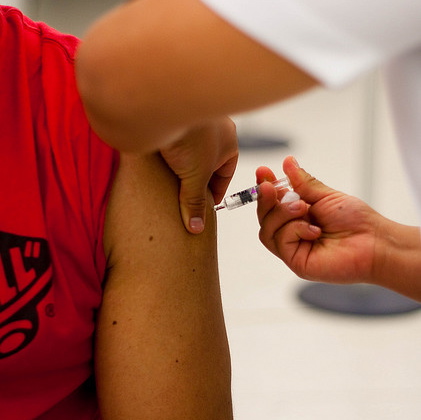
A new report by researchers from the Centers for Disease Control and Prevention finds that while measles has been eliminated in the United States, people continue to bring the disease to the U.S. from foreign countries.
While there are usually 60 cases of measles in the U.S. each year there have been at least 175 cases during 2013 — the second largest number of measles cases in the U.S. since the disease was eliminated in the country in 2000 — nearly three times greater than the average case count in the U.S. since 2000.
According to the CDC, virtually all measles cases were linked to people who brought the disease back to the U.S. after foreign travel. Worldwide, on an average day, 430 children – 18 every hour – die of measles.
The CDC report was published in observance of the fiftieth anniversary of the measles vaccine.
“A measles outbreak anywhere is a risk everywhere,” said CDC Director Tom Frieden, M.D., M.P.H. “The steady arrival of measles in the United States is a constant reminder that deadly diseases are testing our health security every day. Someday, it won’t be only measles at the international arrival gate; so, detecting diseases before they arrive is a wise investment in U.S. health security.”
According to the CDC, currently, only 1 in 5 countries can rapidly detect, respond to, or prevent global health threats caused by emerging infections. Improvements overseas, such as strengthening surveillance and lab systems, training disease detectives, and building facilities to investigate disease outbreaks make the world more secure.
Health security threats come from at least five sources, according to the CDC:
- The emergence and spread of new microbes
- The globalization of travel and food supply
- The rise of drug-resistant pathogens
- The acceleration of biological science capabilities and the risk that these capabilities may cause the inadvertent or intentional release of pathogens
Continued concerns about terrorist acquisition, development and use of biological agents.
“With patterns of global travel and trade, disease can spread nearly anywhere within 24 hours,” Frieden said. “That’s why the ability to detect, fight, and prevent these diseases must be developed and strengthened overseas, and not just here in the United States.”
The CDC report was published in Pediatrics.





